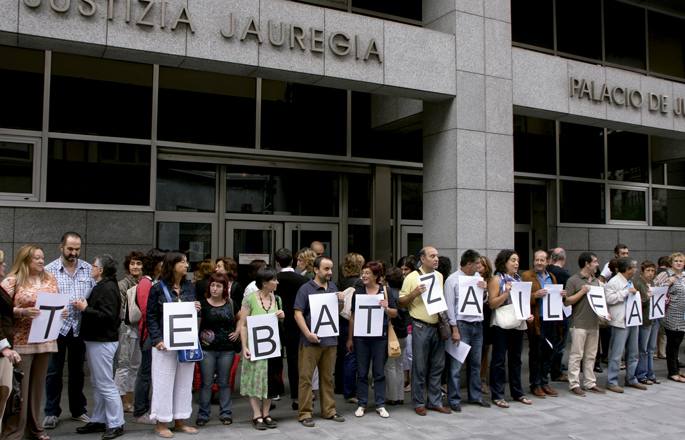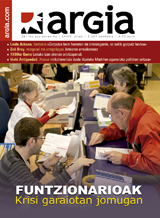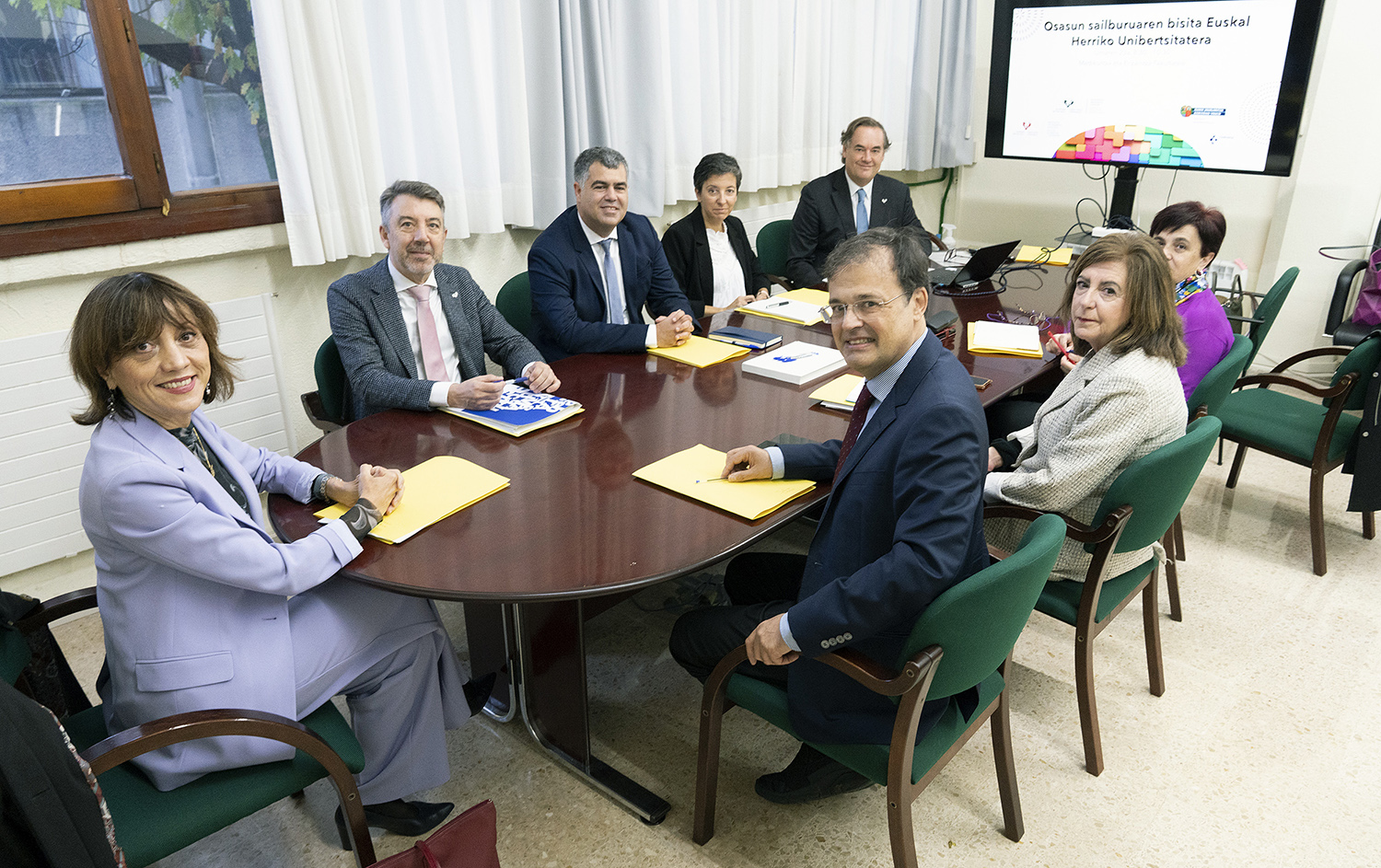The trainers in the street, the Basque in the air
- Cuts are known to all of us. The CAV courts have been one of the last to have suffered these deaths. Or, more specifically, the workers who wanted to increase the presence of Euskera in them and the trainers who worked on it. In view of the cuts, the Department of Justice of the Basque Government has withdrawn the instructors.

For four years, the Basque trainers have worked in the courts within the Basque Government’s plan for the normalization of Euskera. The Euskaldunization cooperative EMUN, in collaboration with the Euskaltegis Elkarlan of Bilbao, has been in charge of offering this service during these years. Last September the contract signed with EMUN was cancelled and the Basque Government called for this service to be provided during the summer. The service was again awarded to the Euskaldunization cooperative of work. But in September, about to sign the contract, the Justice Department made a number of cuts, crippling the project and dismissing the fourteen trainers who were previously working. According to Nerea Sainz de Murieta, a worker of the Getxo Court, it was imminent: “From one day to the next, I received the registration form for the written and oral sessions of the coach on the table and the coach’s farewell message saying they had been kicked out.” The spokeswoman for the Basque Government, Idoia Mendia, explained that from now on the technicians of the Basque Executive will work to guarantee the service in Basque in the courts.
But what were the roles of these trainers? EMUN coach Gorka Blanco has served for almost four years at the Vitoria-Gasteiz Court. He explains that his role was based on on-the-job training: “Workers often make small changes to the documents they use. Changes are usually made in Spanish and we prepared them to do in Basque what we had to do in bilingual documents.” To do so, he taught training sessions on topics such as legal terminology, phraseology and other subjects with the Basque staff. Those who were not Vasco-speakers were taught the resources in Basque. In addition, it launched actions to promote use and campaigns to increase the motivation of workers.
In Getxo's courthouse, Sainz de Murieta said they also worked in a similar way: “If we had doubts when preparing a document, the trainer clarified them.” In addition, he explained that the legal terminology was worked on in the written sessions.
These written training sessions were voluntary, as were the oral sessions. According to Blanco, “some workers were very grateful for the service, but they made an effort to create things in bilingual. The instructors were an indispensable tool for them. The problem is that others did not worry about creating documents in bilingual, and they had no problem making small arrangements in Spanish and Basque, even though they knew they had a person who would help them.”
Coaches nearby
White has underlined the importance of teachers being close to each other when preparing the work. “We had direct contact with the workers. In addition to the training sessions, they knew that when they needed something they could contact us by telephone or by e-mail. We received a lot of consultations and as we were there, we approached the workers and made the translations at the time.” Accordingly, Nerea Sainz de Murieta: “The trainer clarified the doubts that arose in Euskera, how to put this or the other, etc. We still have the possibility of sending doubts to the technicians of the Basque Government through the Intranet, but I do not know how long it can take to receive the answer, perhaps days. With the coach, the answer was immediate.” Blanco has made it clear that from now on technicians will only be in the capitals and that the use of the Basque language in these areas will be guaranteed in some way. “In small towns it’s something else,” he says.
In the absence of this closeness, some of the workers of the courts have neglected the Basque country and the work is already being done entirely in Spanish. “In other cases, when the writing of bilingual documents is mandatory, Spanish and Euskera do not coincide, what we have to put into Euskera is not right,” explains Sainz de Murieta.
Euskera, language of contact
In addition to turning the Basque language into a language of service, the instructors of the courts had the objective of turning it into a working language, that is, the language of relations between workers. In the words of Sainz de Murieta, the oral interventions performed with them contributed to this. All the participants came together and talked about a specific theme, acquiring the habit of speaking in Basque with colleagues. “Here there is a lack of custom and people have no choice to speak in Basque in their surroundings, some only spoke in Basque in those sessions. And now not even that,” explained Getxo’s courthouse worker. On this issue, Blanco believes that the technicians put forward by the Department of Justice will not take a step forward in this matter and adds that the service will be cut in particular.
In the meantime, the representatives of the Basque Government have ensured that the Basque service will be guaranteed to the citizens. In the Department of Justice, in addition to the usual work, there will be twelve technicians who will be responsible for clearing the doubts of the workers of the courts. For Blanco, however, in this way it is impossible to guarantee the service in Basque: “So far, the technicians and trainers trained a team of 26 people. Today they are twelve. If they manage to do everything that was done so far… It’s impossible.” Sainz de Murieta also does not believe that this would guarantee the use of the Basque Country
In recent months I have had to work in a number of institutes and, at some point, I have had to talk to the students about the possibilities offered by the labour market. The typology of the students is varied and in the same city varies a lot from one neighborhood to another,... [+]
Languages Lan has just organised the first international conference on linguistic management in Bilbao. Much has been said in the Congress about language policy, management and tools. And emotions. And from emotions, how many cooperatives, companies and organizations in our... [+]
Few spend their whole lives at the same work. What was common at the time of our parents, today, is absolutely unusual. It seems that millennial generation youth will not spend five years in the same job and the time will be much shorter between Z and Alpha generations.
I too,... [+]
It is often difficult to find a service or product in Basque. Not everything can be achieved in Basque. We must look for suppliers that offer us products and/or services in Basque, both in the private and professional spheres.
Consumer legislation in the regulations of the... [+]











.jpg)








